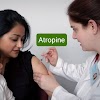🩺 Nursing Skills: Essential Clinical Skills for Every Nurse
Nursing skills are the foundation of safe, compassionate, and effective patient care. Whether you’re a nursing student, preparing for the NCLEX, or working as a registered nurse, mastering core clinical nursing skills is essential for success in any healthcare setting.
This guide covers the most important nursing skills, their purpose, step-by-step procedures, rationales, tips, and why these skills are vital in daily clinical practice.
📘 What Are Nursing Skills?
Nursing skills are a combination of technical, clinical, communication, critical thinking, and emotional intelligence abilities used by nurses to deliver safe and holistic care to patients. These include:
-
Hands-on clinical procedures (e.g., inserting IVs, wound care)
-
Assessment and monitoring (e.g., vital signs, head-to-toe assessments)
-
Documentation and reporting
-
Patient education and emotional support
🔑 Categories of Essential Nursing Skills
Basic Clinical Skills
-
Hand hygiene and PPE use
-
Vital signs assessment
-
Bed making and patient hygiene
-
Oxygen administration
-
Oral and eye care
-
Mobility and positioning techniques
Advanced Nursing Procedures
-
IV insertion and infusion
-
Wound dressing and sterile technique
-
Catheterization (urinary)
-
NG tube insertion and care
-
IM, IV, and subcutaneous injections
-
Suctioning (oral and tracheal)
Assessment Skills
-
Head-to-toe physical assessment
-
Neurological assessment
-
Pain assessment
-
Glasgow Coma Scale (GCS)
-
Respiratory and cardiac assessments
Medication Administration
-
5 Rights of Medication
-
Oral medication administration
-
Insulin injection
-
Intravenous drug administration
-
Drug reconstitution and dosage calculation
Communication and Interpersonal Skills
-
Therapeutic communication
-
SBAR (Situation-Background-Assessment-Recommendation) reporting
-
Conflict resolution in healthcare
-
Empathy and patient advocacy
🧪 Detailed Nursing Skill Example: Vital Signs Monitoring
Purpose:
To monitor the physiological status of the patient and detect early changes in condition.
Equipment:
Thermometer, BP cuff, stethoscope, pulse oximeter, watch
Steps:
-
Hand hygiene and introduce self to the patient
-
Explain the procedure
-
Check temperature (oral, axillary, tympanic)
-
Measure pulse (rate, rhythm, strength)
-
Assess respirations (rate, depth, rhythm)
-
Measure BP using auscultation or digital machine
-
Check oxygen saturation with pulse oximeter
-
Record findings and report any abnormalities
Rationale:
Vital signs reflect critical body functions and help in decision-making during patient care.
🧠 Must-Have Core Nursing Skills in Clinical Practice
| Skill | Purpose | Common Areas |
|---|---|---|
| Aseptic Technique | Prevent infection | Wound care, dressing change |
| IV Insertion | Administer fluids/meds | Emergency, ICU, surgical |
| Foley Catheterization | Drain urine | Urology, long-term care |
| Blood Glucose Testing | Monitor sugar levels | Medical, endocrine |
| CPR and BLS | Emergency life-saving | ER, cardiac arrest |
| Wound Care | Promote healing | Post-op, trauma |
| Medication Prep | Safe drug delivery | All nursing units |
📝 Skill Documentation and Reporting
Why it matters:
Accurate documentation ensures legal protection, team communication, and care continuity.
Include:
-
Time and date of procedure
-
Equipment used
-
Observations (color, odor, drainage, etc.)
-
Patient’s response
-
Signature and designation
🧑⚕️ Tips for Learning and Practicing Nursing Skills
-
Practice in the lab before clinical rotations
-
Use nursing skills checklists for self-evaluation
-
Watch procedure videos from trusted sources (e.g., NurseLabs, Elsevier)
-
Simulate skills with classmates
-
Ask for feedback from clinical instructors
-
Stay up to date with clinical guidelines (e.g., CDC, WHO)
📖 How Nursing Skills Are Tested in NCLEX and Clinical Exams
The NCLEX and most OSCEs (Objective Structured Clinical Exams) test practical skills like:
-
Prioritizing care (e.g., ABCs)
-
Performing assessments
-
Medication safety
-
Infection control
-
Delegation and documentation
Prepare by practicing Next Generation NCLEX-style case scenarios that simulate real-world nursing challenges.
🔄 Real-World Scenario Example
Case: Post-surgical patient with abdominal wound and urinary catheter
Required Nursing Skills:
-
Hand hygiene and PPE before care
-
Vital signs monitoring every 4 hours
-
Pain assessment using numeric pain scale
-
Sterile wound dressing change
-
Catheter care and output monitoring
-
Documentation of wound condition
-
Patient education on wound healing and hygiene
📋 Top 20 Nursing Skills Checklist (For Students & New Nurses)
-
Hand hygiene
-
Bed making with patient in bed
-
Full vital signs assessment
-
Oxygen administration
-
Injection techniques (IM, SubQ)
-
Inserting an IV cannula
-
Blood glucose monitoring
-
Foley catheter insertion
-
Oral medication administration
-
Suctioning (oral/nasal)
-
Sterile wound dressing
-
NG tube insertion and feeding
-
CPR & BLS technique
-
Head-to-toe assessment
-
Proper documentation/charting
-
SBAR communication
-
Blood transfusion monitoring
-
Postoperative care
-
Fall risk assessment
-
Pressure ulcer prevention and staging
📚 Recommended Learning Resources
-
Nursing Skills Labs Books: Potter & Perry, Fundamentals of Nursing
-
Online Platforms:
-
YouTube Channels: Fahad RNurse, Nursing Blueprint, LevelUp RN, SimpleNursing
-
NurseLabs Skills Videos
-
Medscape Clinical Skills
-
-
Apps: Nursing Skills by Elsevier, Epocrates
-
Manuals: Hospital nursing procedure manuals
📖 Conclusion
Nursing skills are more than technical tasks—they are the art and science of caregiving. From starting an IV to offering emotional support, every skill plays a crucial role in healing. Developing competence in these skills ensures not only better patient outcomes but also professional confidence and career success.
“Nursing skills are not just learned—they are practiced with passion, perfected with time, and delivered with care.”






0 Comments